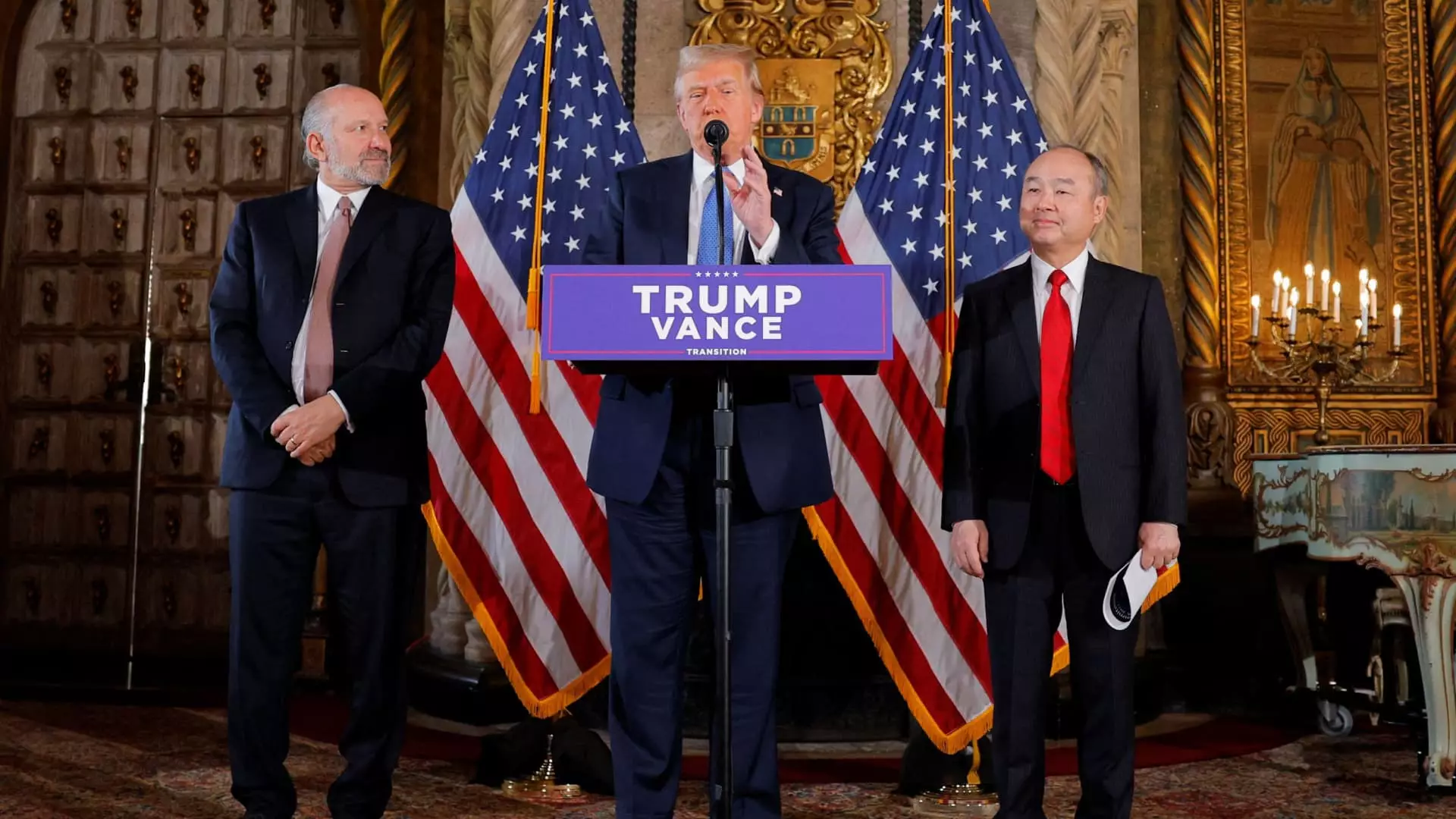In an extraordinary display of confidence in the American economy, SoftBank’s CEO Masayoshi Son has pledged an astonishing $100 billion investment in the United States over the next four years. This announcement, made during a meeting at President-elect Donald Trump’s Mar-a-Lago estate, signifies not just a financial commitment but a strong endorsement of the future potential of U.S. industries, particularly in technology sectors like artificial intelligence (AI). Son’s declaration accentuates the intertwining of corporate strategy and national policy as both he and Trump emphasized the relevance of this investment to job creation—aiming for a minimum of 100,000 new jobs, particularly in high-tech fields.
This isn’t the first time that SoftBank’s ambitions have collided with the U.S. political landscape. Following Trump’s initial election win in 2016, SoftBank had already invested $50 billion, promising the creation of 50,000 jobs—an indication of an ongoing partnership that suggests mutual benefits. The consistency of Son’s investments underlines a vision of economic synergy between Japan’s tech giant and America’s dynamic market. Observers might ponder whether this latest round of investment is merely an echo of past commitments or a strategic pivot influenced by the changing political environment and economic expectations during Trump’s administration.
Son’s positive outlook towards the U.S. economy is worth examining, as statements like, “My confidence level to the economy of the United States has tremendously increased with his victory,” reflect an optimistic view that might resonate with similar sentiments within the tech industry. The notion that Trump is a “double down president” implies that the current administration is perceived as favorable to business, particularly for international investors. This could herald a new trend where businesses from across the globe are incentivized to invest in American soil, thereby boosting national growth.
The sourcing of the $100 billion investment appears multifaceted, potentially utilizing a mix of funding from various SoftBank-controlled entities, most notably the Vision Fund. The substantial role this fund plays in SoftBank’s operational strategy cannot be underestimated; it has been a significant vehicle for growth, allowing investments into pioneering companies such as OpenAI. The fact that some of the capital earmarked for this initiative may stem from prior investments indicates financial maneuvering rather than newly generated funds, raising questions about the sustainability of such ambitious promises in a fluctuating economic landscape.
Masayoshi Son’s commitment marks a critical juncture in U.S.-Japan investment relations, with potential long-term implications for job creation in technology and beyond. While this ambitious initiative is notable, it requires careful observation to assess its impact and execution. The intersection of corporate strategy and political encouragement presents a complex narrative that will shape the economic discourse in both nations for years to come. The venture holds promise, but the dynamic nature of global business and geopolitics will ultimately determine its success.

